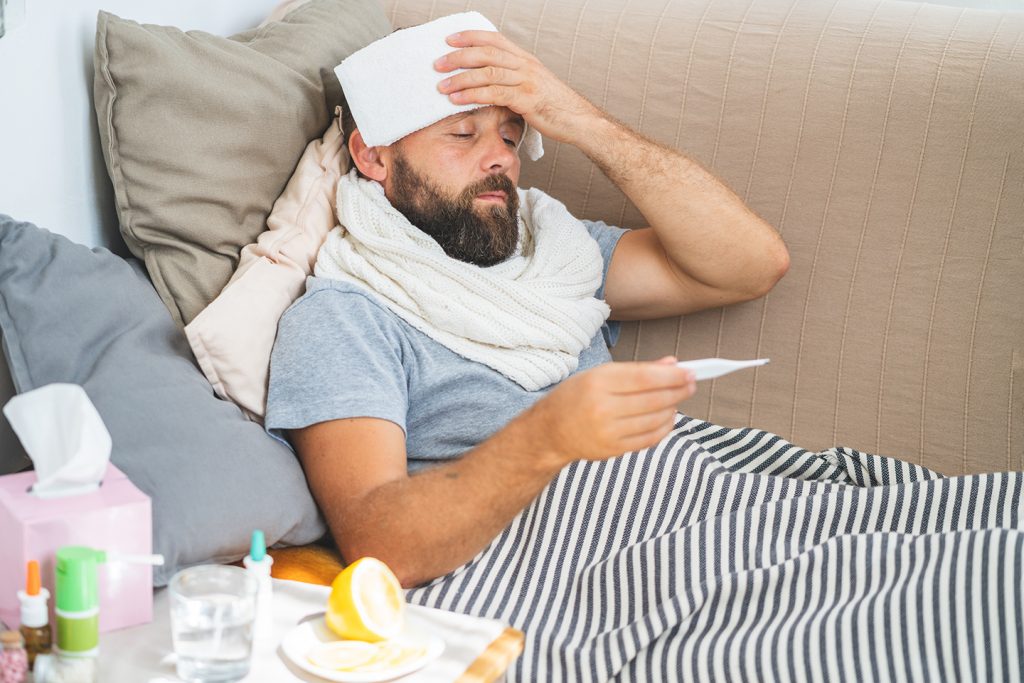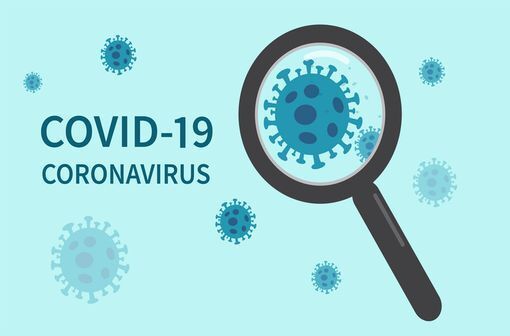How Long After Exposure do Symptoms Appear – You can learn as much as you want regarding the spread of COVID, but in the end, you will have so many questions in your mind. To be honest, there is so much to talk about COVID these days.
So much is happening in the world, and everything is new for us. Before 2019 you might not have heard about isolation, quarantine, or lockdown. Now we see each other as a threat.
COVID is hard on our lives, but it is not impossible to save yourself from the virus. With the right knowledge, we can save ourselves and even save our families at the same time. Today, we will talk about how long after exposure to symptoms of fear.
As the cases of COVID-19 are rising once again in the United States, the level of fear is also rising at the same time. We have to discuss issues like symptoms and their timeline to make sure that we get the right treatment at the right time.
The Timeline of COVID Symptoms
Let’s first address the main question of the day, which is the timeline of COVID symptoms.
The Centers for Disease Control and Prevention have Mentioned on its official website that you can develop symptoms of COVID within 2 to 14 days of your exposure to someone infected with COVID.
Under any circumstances, you are not going to develop symptoms of COVID-19 on the same day. It is very hard for the virus to infect your body and start developing symptoms within a few hours.
Average Time
Several studies on the timeline of COVID symptoms have concluded that a person can develop symptoms within five to six days of close contact with someone infected with the virus.
There are so many factors that can influence the starting of the development of symptoms. We will also talk about these influencing factors in some time.
Even though people can start developing symptoms of COVID-19 such as fever and sore throat within two days of their exposure and close contact with the virus, it is a very rare thing.
Apart from that, a few studies have already indicated that people usually develop symptoms after the 10th to 12th day of their close contact with someone infected with the virus.
Most people develop symptoms within 14 days of their exposure to COVID-19. But, there could be 1% of people who might develop symptoms after 14 today because of their immunity against the virus.
Factors Influencing the Timeline
Now, let’s take a look at some factors which can influence the timeline of the development of symptoms.
The symptoms and the intensity of the symptoms of COVID are not going to be the same for every person in the world. We all are built differently, and we can see it during the spread of COVID-19.
Chronic Disease
People who are already struggling with some chronic diseases can develop symptoms as early as two to four days of exposure.
Several studies have already concluded that immune-compromised people and people at high risk of developing severe symptoms of COVID-19 can easily get infected and develop symptoms as early as possible.
The Centers for Disease Control and prevention Consider these people as high risk from COVID-19 and immune-compromised. They also have separate guidelines for these people and request everyone to keep themselves tested when they are around people at high risk of developing severe symptoms due to COVID-19.
Immunity
Immunity against the virus is among the biggest factors which can influence the whole timeline. Even in general, immunity can save you from several diseases regularly.
As compared to people who are already struggling with some disease, healthy people are less likely to get infected or develop any symptoms whatsoever related to COVID-19.
Apart from that, people who have good immunity are less likely to develop any severe symptoms of COVID-19. Even if you look at the data, You will see a huge number of people who were hospitalized during the first few waves of COVID-19 were already struggling from some other disease.
Healthy people, all people who have good immunity naturally, are not as easy to develop symptoms as anyone else.

When to see the doctor?
Not everyone lives with a virus in the human body for around ten days. Once people start developing the symptoms of COVID-19, they can get better within 7 to 10 days.
Apart from that, most people do not even require any medical attention to get better from the infection. The latest sub-variants of omicron are more infectious, but they are not as deadly as the previous variants of COVID-19.
Usually, people do not even require any medical attention, but there are certain things that you should keep in mind, and you should immediately seek medical attention if you develop these things.
- If your symptoms are not getting better after the 5th day of development, then you should contact your doctor or seek emergency medical attention.
- If you are having trouble breathing on any given day, you should contact your doctor right away.
- In case you develop symptoms like changing the color of your skin, lips, or nail beds, then you should consult with your doctor as early as possible.
- Apart from that, if you are not able to stay awake even after a long nap, then you should consult with your doctor or seek emergency medical attention.
- Lastly, if you develop any symptoms not related to COVID-19, then you should consult with your doctor as early as possible.
How many days does it take to get better from COVID-19?
From the day of exposure, it might take around 21 days to completely recover from COVID-19. But, it depends on the person and when they start developing the symptoms. Usually, people develop symptoms after seven days of exposure, and these symptoms also stay in your body for around 7 to 10 days. If you are not able to get better even after 7 to 10 days of developing the symptoms, then you should consult with your doctor.
